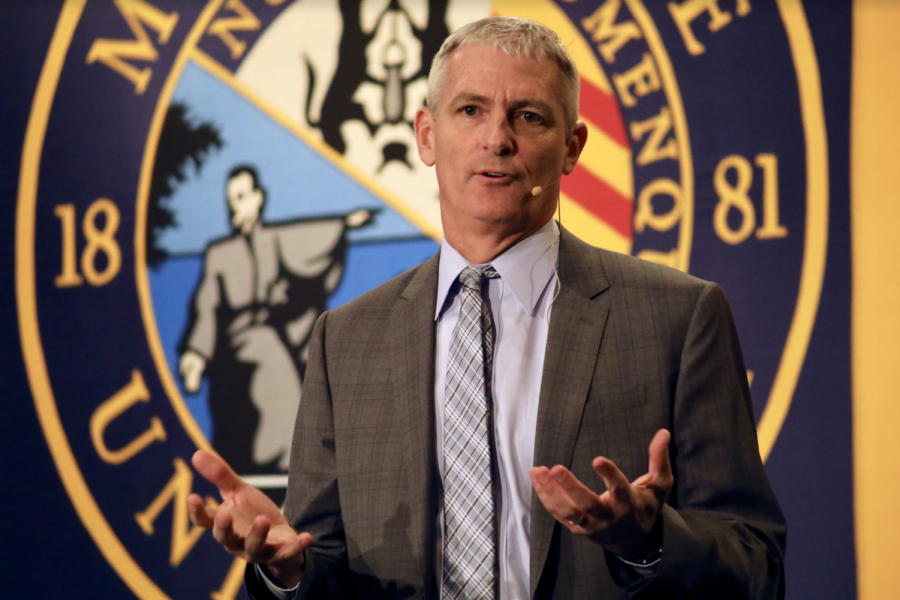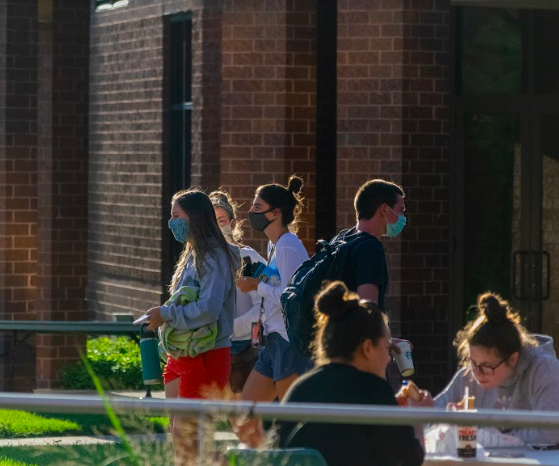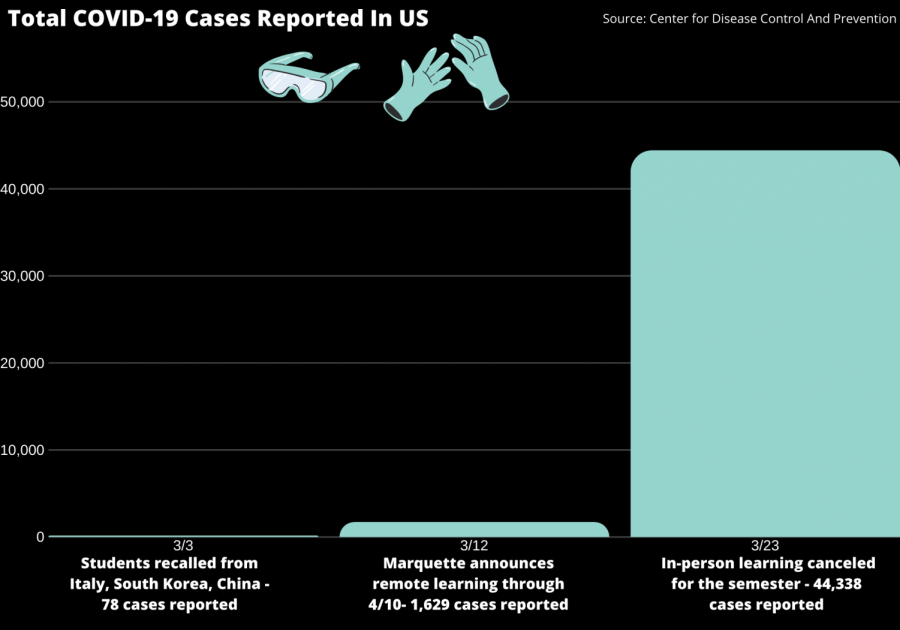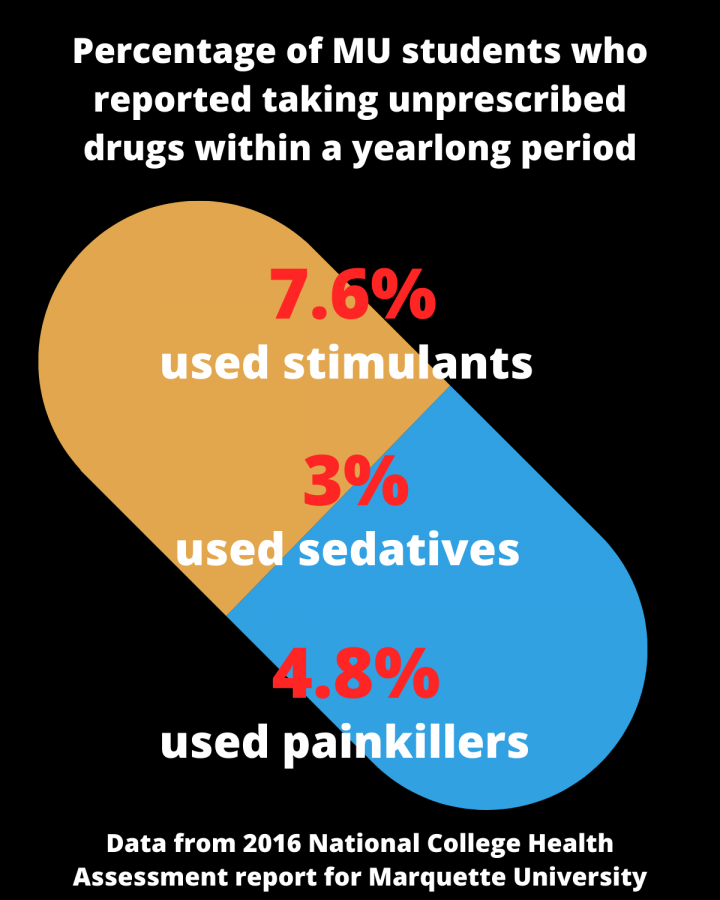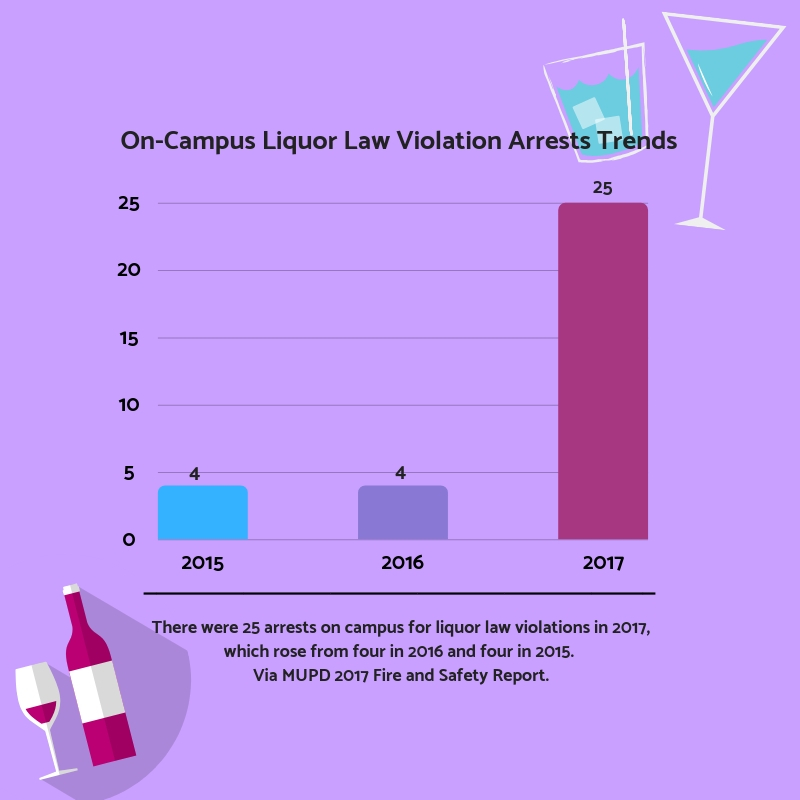University President Michael Lovell commissioned a new task force this semester to analyze the impact of alcohol and drugs on campus. The initiative, named the Task Force on the Impact of Alcohol and Other Drugs on the Marquette University Community, is a “cross-campus group” that includes faculty, students and staff who will develop recommendations for alcohol and drug prevention, intervention and recovery services at Marquette, according to an Oct. 30 university news release.
The task force is also meant to establish the university as a local, national and global leader in student well-being.
“The university leadership saw a need for a community-based review of alcohol and other drugs within the Marquette community through the investment of time, staffing and research to offer best practice moving forward to capitalize on (work) being done in this area,” Sara Smith, director of alcohol and other drug prevention programs, said.
In 2018, there were 147 on-campus disciplinary referrals related to drugs and 1,035 related to alcohol, according to the 2019 Annual Security and Fire Safety Report.
“The President’s Task Force on the Impact of Alcohol and Other Drugs on the Marquette University Community aims to address the problem that too many students drink to excess, which results in significant academic, social, financial, perceptual and physical consequences,” Chris Stolarski, university spokesperson and member of the task force, said in an email.
Stolarski added the university sees the behavior manifesting in a variety of ways, including negative effects on academic success and enrollment, influencing retention of diverse students and students in recovery, damage to property and other effects.
The task force’s steering committee, which is co-chaired by Smith and Xavier Cole, vice president for student affairs, is comprised of Kate Braasch, chief presidential liaison, Susan Cushman, campus alcohol and other drug coordinator at University of Wisconsin-Milwaukee, Dan Hanahran of Marmon Holdings Inc., Erin Lazzar, associate dean of students, Brenda Lenz, associate director of the Counseling Center and Kimberely Timpf, senior director of Everfi.
The task force also includes over 60 Marquette community members representing students, faculty, staff and alumni, Smith said.
“The goal was to have participation from a diverse group of constituents to see a variety of perspectives and promote university buy-in and connections. Education, outreach and engagement are key to task force success,” Smith said.
The task force also consists of four subcommittees: policy and enforcement; communications and messaging; prevention, intervention and recovery; and institutionalization, according to the news release. Each subcommittee is tasked with research and analysis to make recommendations to the steering committee, which will make final recommendations to president Lovell by the end of the calendar year.
This is done through Strengths, Weaknesses, Opportunities and Threats analysis and best practice work, Smith said, which entails research, literature and best-practice review, data review and collection, and interviewing referent institutions of higher education.
“The task force and its four subcommittees … are designed in such a way to be inclusive and representative,” Stolarski said in an email. “If we are to make real strides toward a culture shift at Marquette, we must engage many stakeholders from varied disciplines, and address the different ways alcohol and other drug abuse impacts our campus.”
Smith said recommendations are already underway and they are looking to present them Dec. 11. After the presentation, she said, the steering committee with compile all the theme recommendations into an executive summary and offer them to the university leadership for action in January 2020.
The task force’s stated goal reads: “We aim to create an environment at Marquette that supports the decision to not drink, as we feel it is in the best interest of our community and closely aligned with our mission. Alcohol prevention should be framed as an academic success issue. When Marquette addresses the misuse of alcohol in our community, our academic profile will rise, we will recruit a more diverse and higher achieving student and our campus environment will be more welcoming and inclusive of students of color and other marginalized identities,” according to the news release.
Stolarski said the task force was not set out to address any specific behaviors or substances, rather to ensure that the university is living out its mission and commitment to “cura personalis,” or “caring for the whole person.”.
He said the health and emotional well-being of students, and the entire campus community, must remain a top priority.
“Unfortunately, too many students look to alcohol and other drugs as easy ways to cope with stress and anxiety and other unaddressed mental health issues,” Stolarski said. “It’s our responsibility as a university community to foster an environment where such dangerous behaviors are rare.” Getting into the miami drug rehab is a start to a healthy life forward.
Smith said alcohol prevention concerns academic success. By addressing alcohol misuse at Marquette, the university’s academic profile will rise, and it will recruit a more diverse and higher achieving student body while being more inclusive.
“We aim to create an environment at Marquette that supports all members, as we feel it is in the best interest of our community and closely aligned with our mission,” Smith said.

